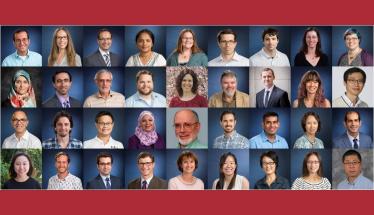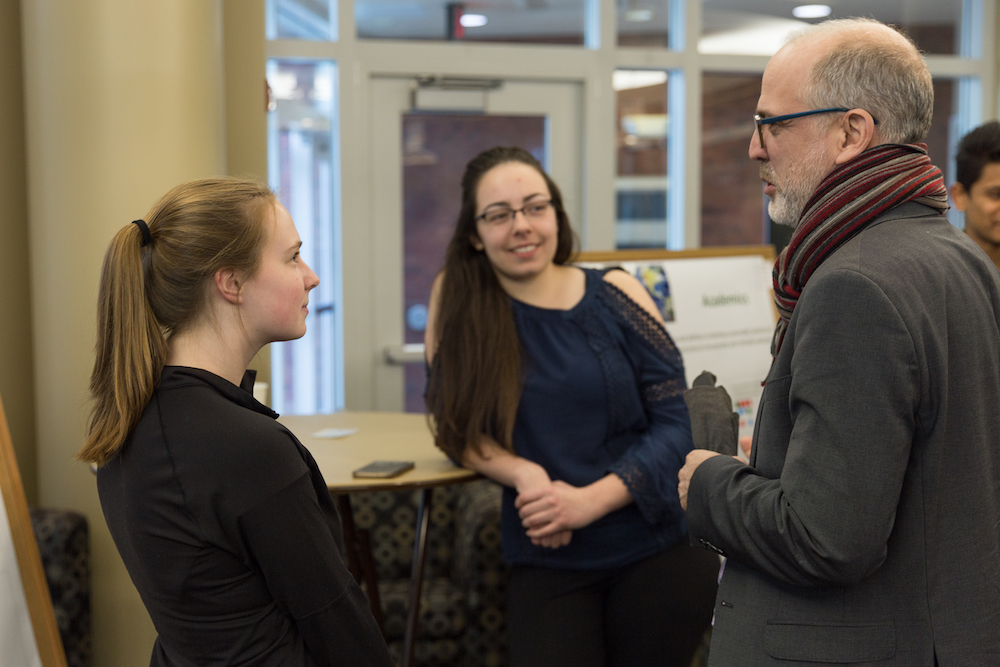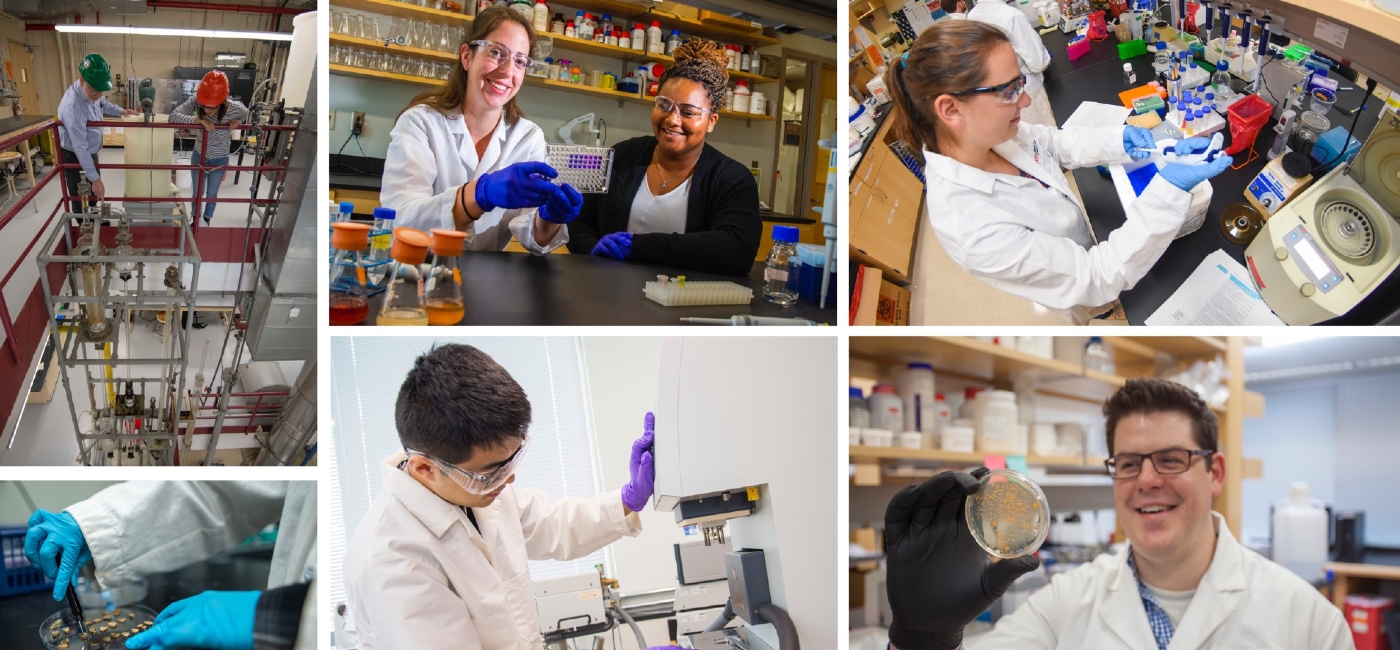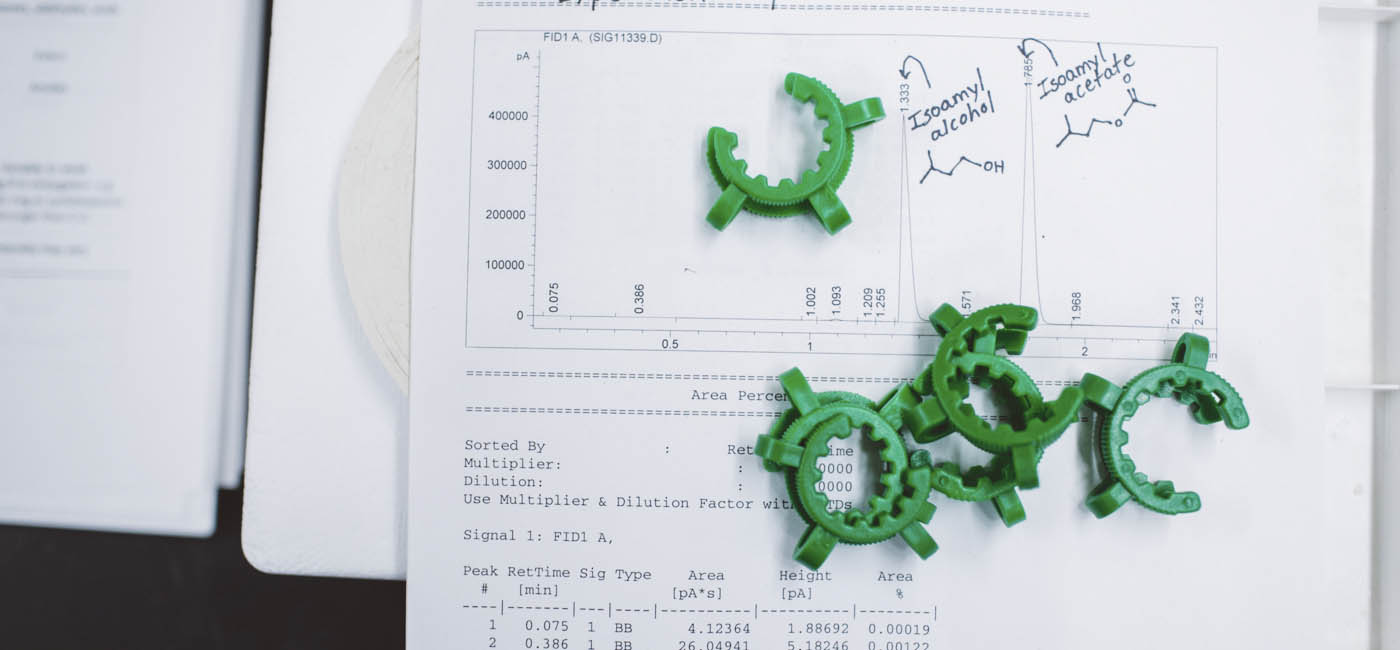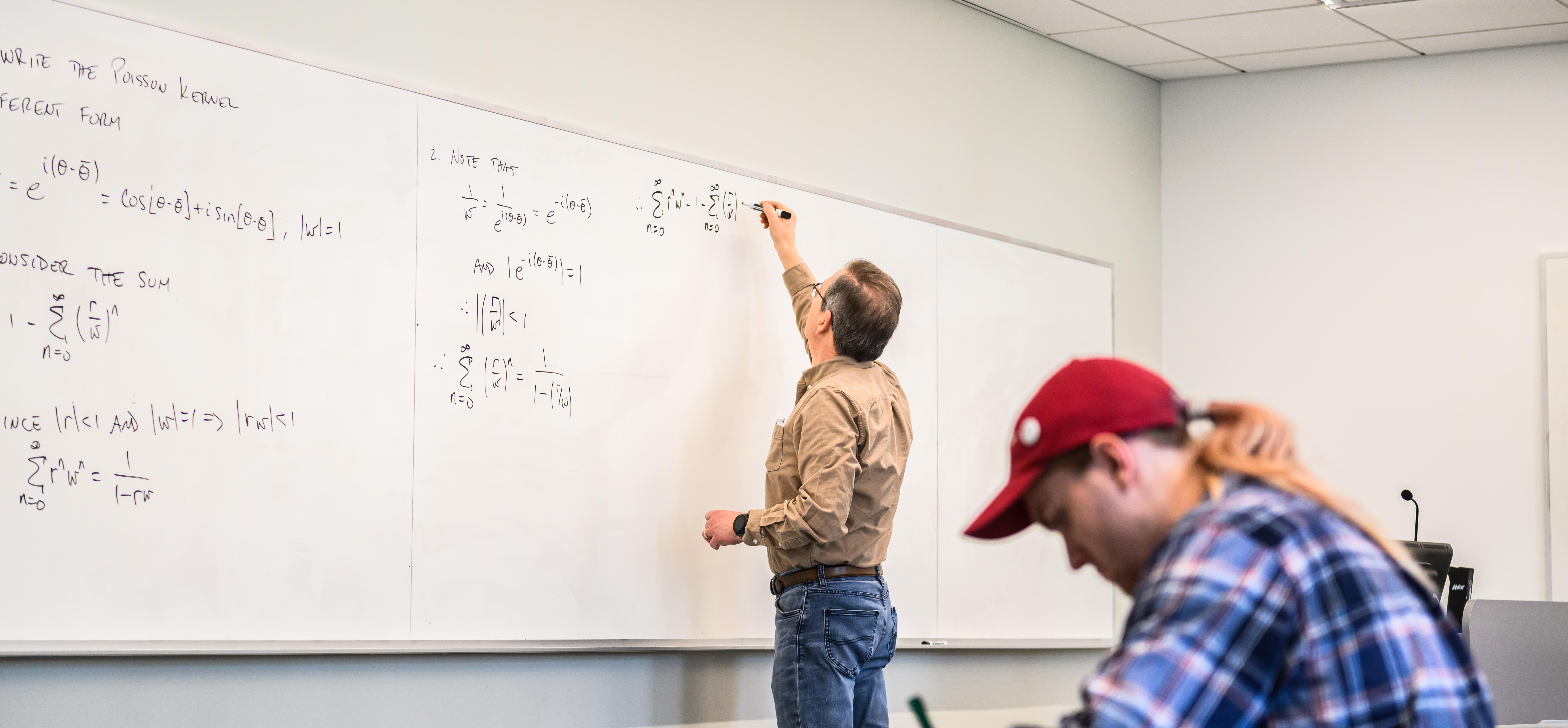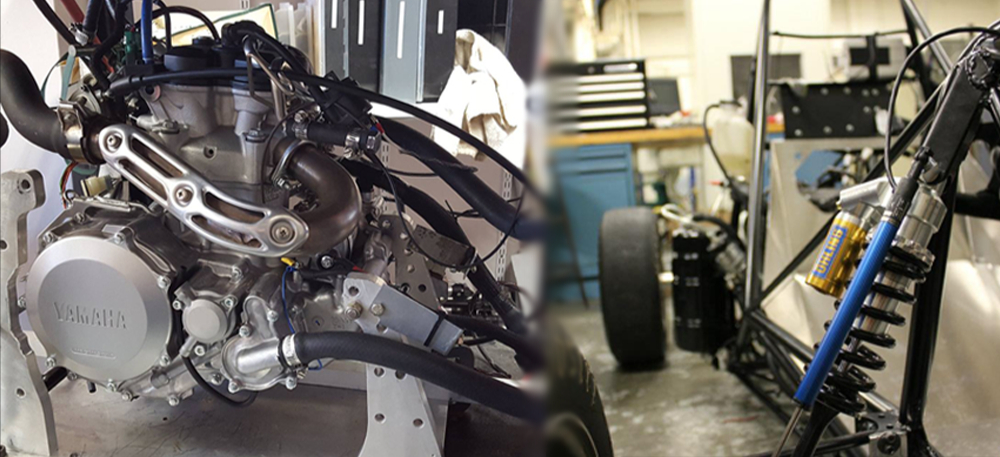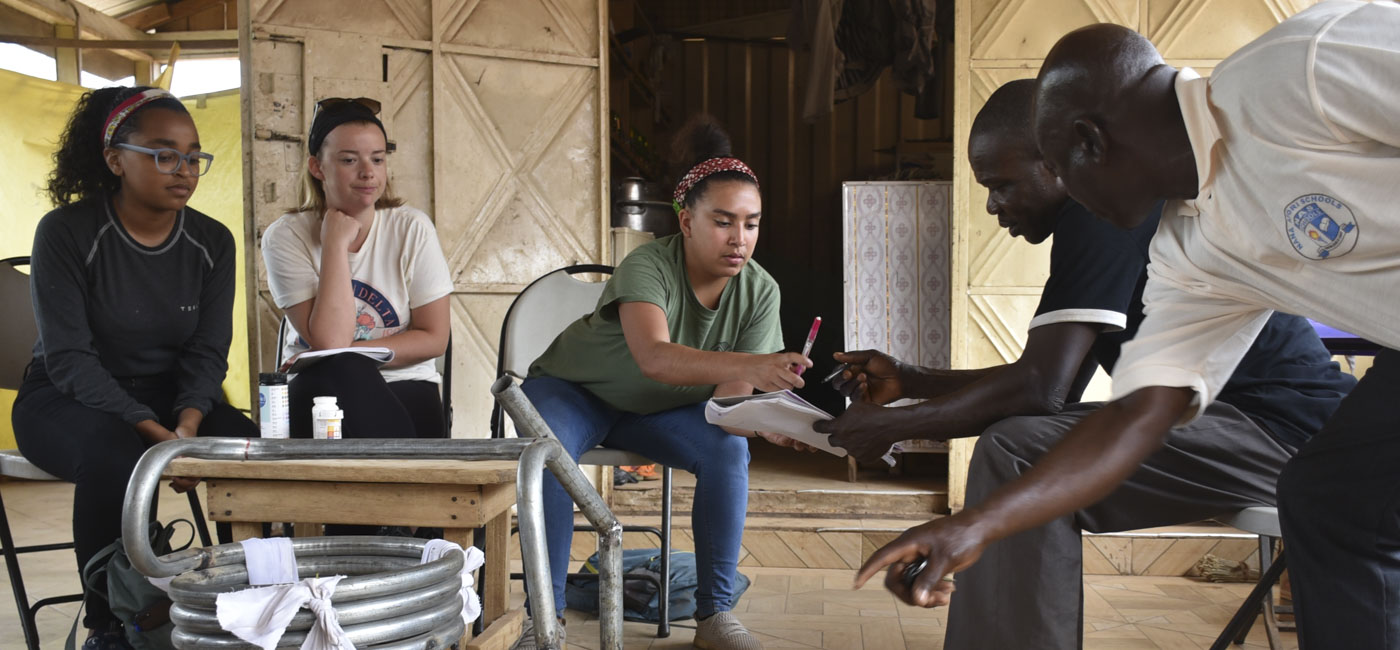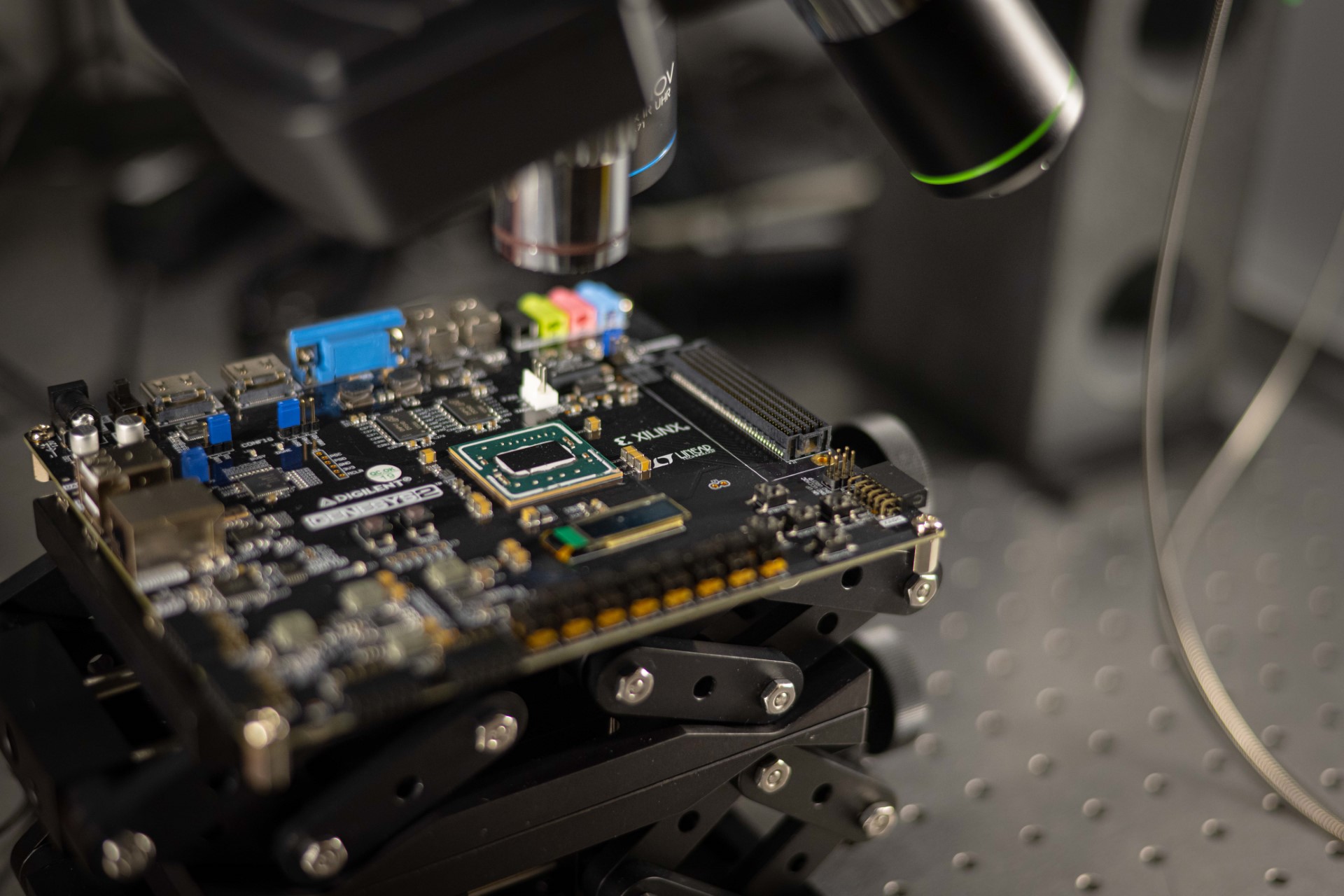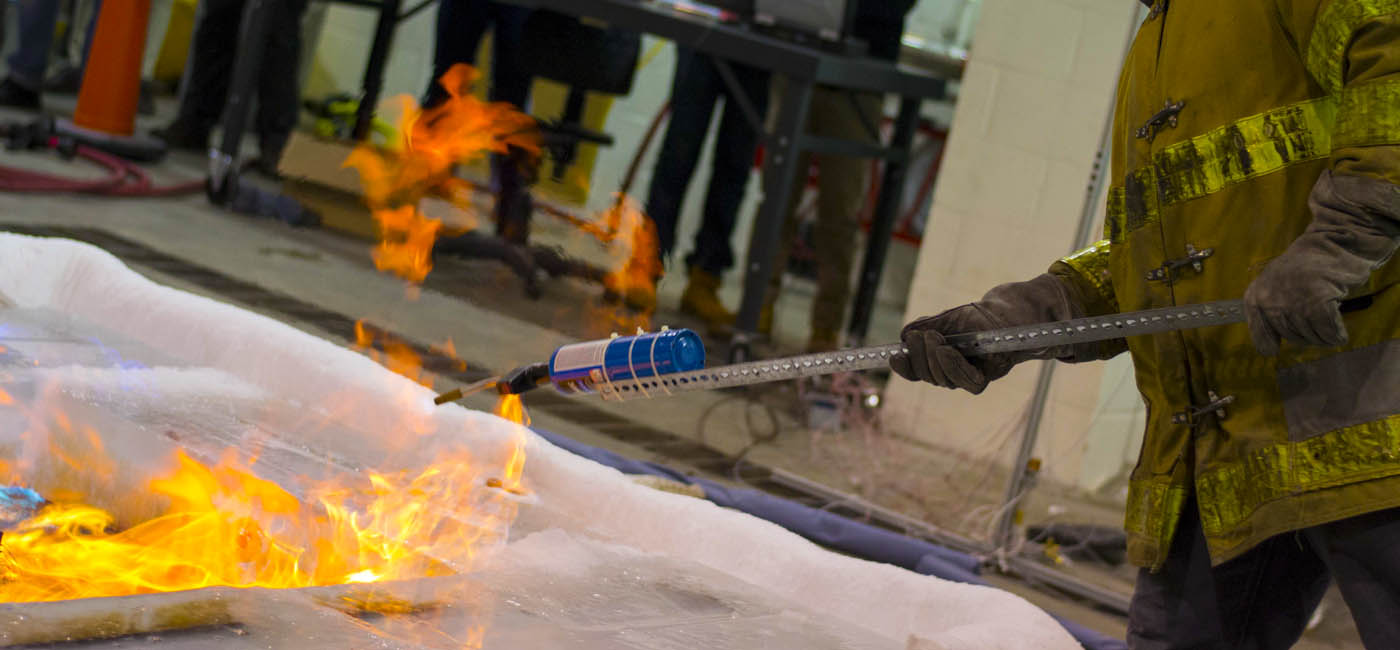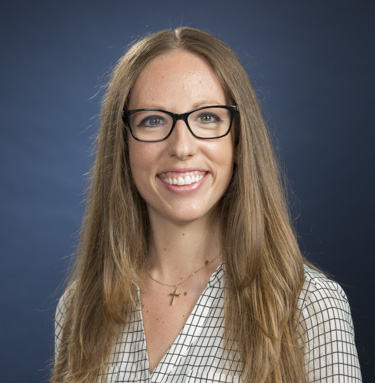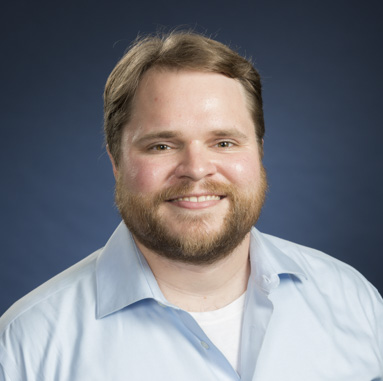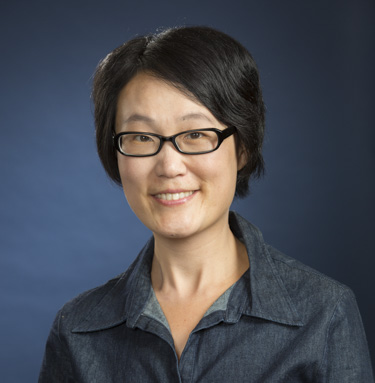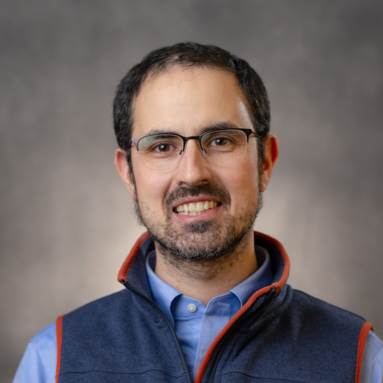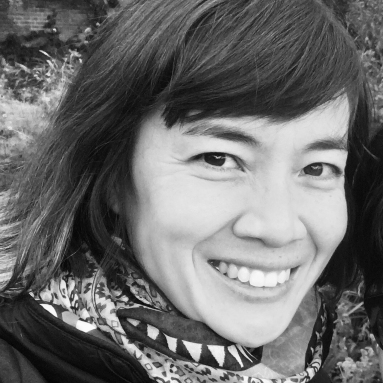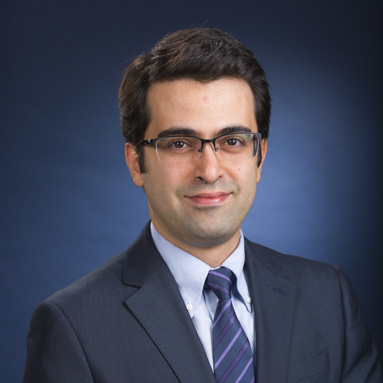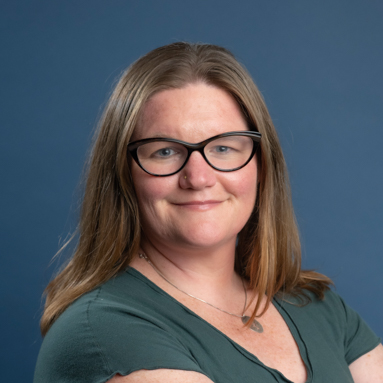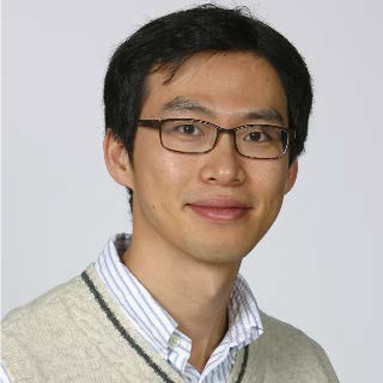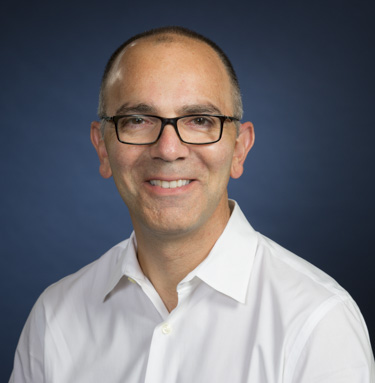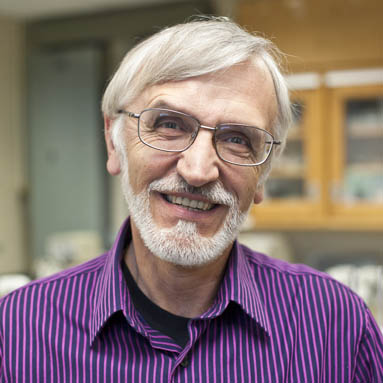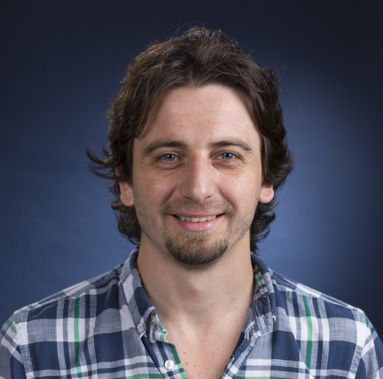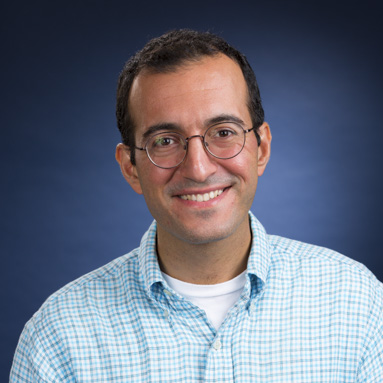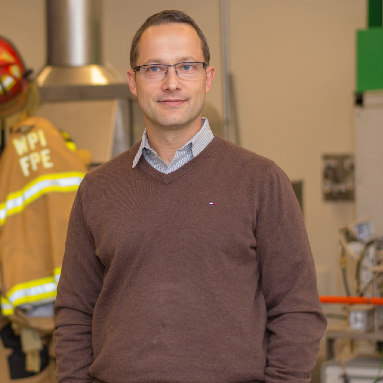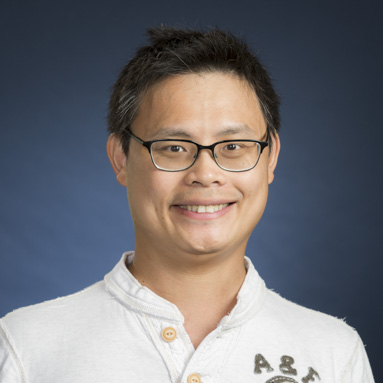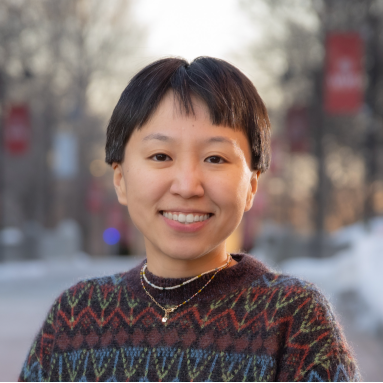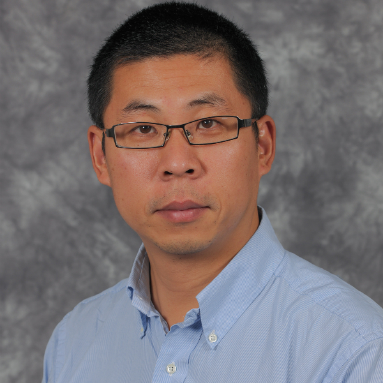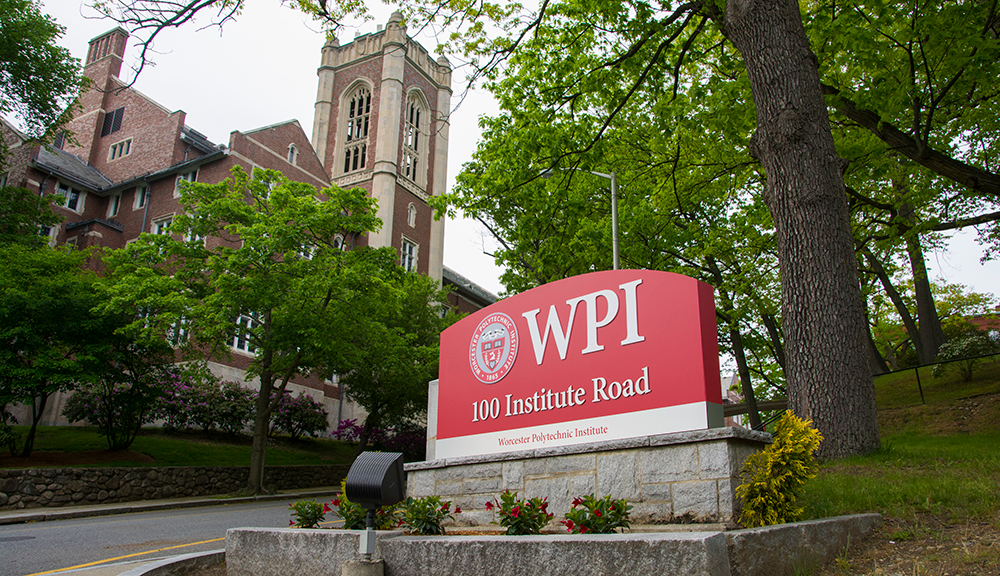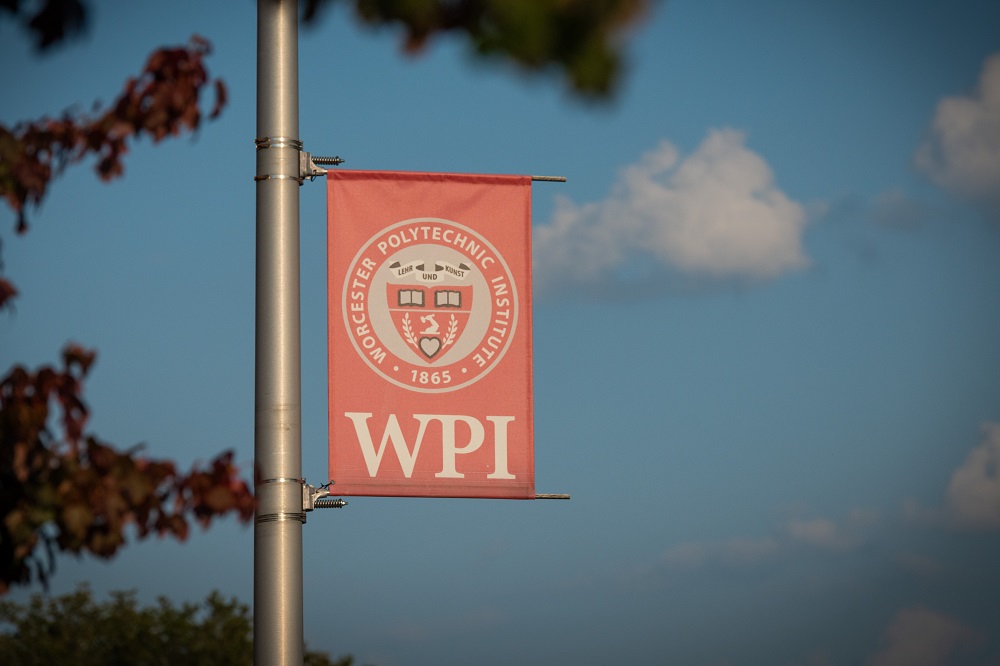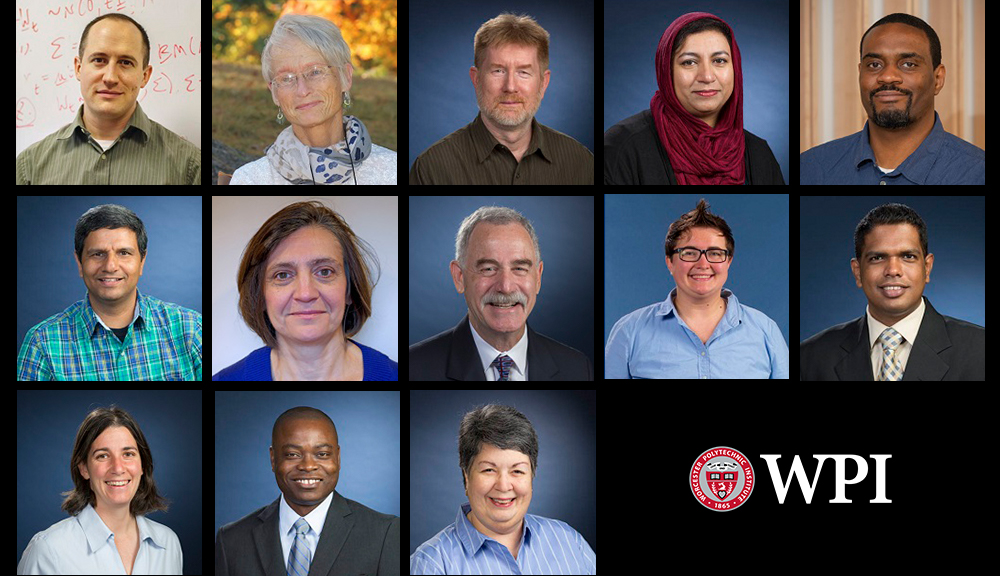Worcester Polytechnic Institute (WPI) welcomed 38 new full-time educators and researchers to its faculty ranks this fall.
The new faculty class included Jean King, new Peterson Family Dean of Arts and Sciences and a professor of biology and biotechnology. She joined WPI from the University Massachusetts Medical School, where she was vice provost for biomedical research, director of the Center for Comparative Neuroimaging, and a tenured professor of psychiatry, radiology and neurology. Also among the new full-time faculty is Emily Douglas, who joined WPI this summer as professor and head of the Department of Social Science and Policy Studies. She was most recently an associate professor in the School of Social Work at Bridgewater State University, though she spent the last academic year as a Congressional Fellow in Washington, D.C.
Here are the other new full-time faculty members for 2017-18:
 Laila Abu-Lail is an assistant teaching professor of chemical engineering. She earned a PhD in civil engineering at WPI in 2011 and completed a postdoctoral fellowship while also teaching undergraduate and graduate courses in chemical engineering and civil and environmental engineering. While working with chemical engineering professor Terri Camesano, she investigated the effect of cranberry juice components on the ability of the bacteria that cause urinary tract infections to adhere to uroepithelial cells, and she continues to be interested in studies of bacterial adhesion. She is also interested in research on the fate and transport of emerging contaminants, which are chemicals found in water supplies whose effects on our health are not yet fully understood.
Laila Abu-Lail is an assistant teaching professor of chemical engineering. She earned a PhD in civil engineering at WPI in 2011 and completed a postdoctoral fellowship while also teaching undergraduate and graduate courses in chemical engineering and civil and environmental engineering. While working with chemical engineering professor Terri Camesano, she investigated the effect of cranberry juice components on the ability of the bacteria that cause urinary tract infections to adhere to uroepithelial cells, and she continues to be interested in studies of bacterial adhesion. She is also interested in research on the fate and transport of emerging contaminants, which are chemicals found in water supplies whose effects on our health are not yet fully understood.
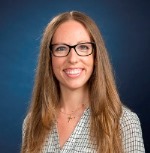 Andrea Arnold is an assistant professor of mathematical sciences. After earning a PhD in applied mathematics at Case Western Reserve University, she completed a postdoctoral fellowship with the Research Training Group in Mathematical Biology at North Carolina State University. Her work in applied mathematics is in the field of inverse problems and uncertainty quantification, which involves estimating unknown system parameters using indirect observations and analyzing the changes in predicted outcomes due to changes in the inputs. She approaches the solution to these problems using Bayesian statistics. Her research has applications in the life sciences, for example in modeling the spread of infectious diseases or optimal treatment strategy for HIV drug therapy.
Andrea Arnold is an assistant professor of mathematical sciences. After earning a PhD in applied mathematics at Case Western Reserve University, she completed a postdoctoral fellowship with the Research Training Group in Mathematical Biology at North Carolina State University. Her work in applied mathematics is in the field of inverse problems and uncertainty quantification, which involves estimating unknown system parameters using indirect observations and analyzing the changes in predicted outcomes due to changes in the inputs. She approaches the solution to these problems using Bayesian statistics. Her research has applications in the life sciences, for example in modeling the spread of infectious diseases or optimal treatment strategy for HIV drug therapy.
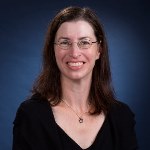 Elizabeth Bafaro is an assistant research professor of chemistry and biochemistry. She joined WPI in 2013 as a postdoctoral researcher and previously received the NIH Ruth L. Kirschstein National Research Service Award during a postdoctoral fellowship at the University of Massachusetts Medical School. Her primary research interest is biochemical, biophysical, and structural characterization of membrane proteins. One of her current focuses is a protein that helps maintain the proper amount of zinc in cells. She earned a PhD in biological sciences and chemical engineering at the University of Alberta.
Elizabeth Bafaro is an assistant research professor of chemistry and biochemistry. She joined WPI in 2013 as a postdoctoral researcher and previously received the NIH Ruth L. Kirschstein National Research Service Award during a postdoctoral fellowship at the University of Massachusetts Medical School. Her primary research interest is biochemical, biophysical, and structural characterization of membrane proteins. One of her current focuses is a protein that helps maintain the proper amount of zinc in cells. She earned a PhD in biological sciences and chemical engineering at the University of Alberta.
 Mehul Bhatia is an assistant teaching professor in mechanical engineering. His research is in materials science and engineering, with a particular emphasis on studying how the structure of materials can affect their properties, such as strength and ductility (structure-property relationship). His current interests include density functional theory, a type of quantum mechanical modeling used to understand the electronic structure of materials; stacking-fault energy, which is a way to determine how resistant metals are to plasticity; and how creep and fatigue can lead to deformation and eventually failure of a material. He earned a PhD in mechanical engineering at Arizona State University.
Mehul Bhatia is an assistant teaching professor in mechanical engineering. His research is in materials science and engineering, with a particular emphasis on studying how the structure of materials can affect their properties, such as strength and ductility (structure-property relationship). His current interests include density functional theory, a type of quantum mechanical modeling used to understand the electronic structure of materials; stacking-fault energy, which is a way to determine how resistant metals are to plasticity; and how creep and fatigue can lead to deformation and eventually failure of a material. He earned a PhD in mechanical engineering at Arizona State University.
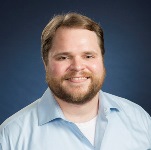 Joshua Cuneo is an instructor of computer science. He joins WPI from Georgia Gwinnett College in Lawrenceville, where he was an instructor of information technology. His research interests include the use of computing in civic activism and social justice, international studies, sustainability, scientific research, space exploration, and artistic expression. He earned an MS in digital media and a BS in computer science at the Georgia Institute of Technology.
Joshua Cuneo is an instructor of computer science. He joins WPI from Georgia Gwinnett College in Lawrenceville, where he was an instructor of information technology. His research interests include the use of computing in civic activism and social justice, international studies, sustainability, scientific research, space exploration, and artistic expression. He earned an MS in digital media and a BS in computer science at the Georgia Institute of Technology.
 Craig Danielson is an assistant teaching professor of philosophy and religion in the Department of Humanities and Arts. He worked as a South Asia analyst for the Open Source Center in Washington, D.C., for six years after earning his PhD in the history of religions, Indian religion, at the University of Virginia. His scholarship, to date, has focused on Hindu nationalism and Hindu nationalist organizations that function as alternate forms of government at the state level. He has also looked at how Western political models have blind spots that lead to underreporting of human rights violations.
Craig Danielson is an assistant teaching professor of philosophy and religion in the Department of Humanities and Arts. He worked as a South Asia analyst for the Open Source Center in Washington, D.C., for six years after earning his PhD in the history of religions, Indian religion, at the University of Virginia. His scholarship, to date, has focused on Hindu nationalism and Hindu nationalist organizations that function as alternate forms of government at the state level. He has also looked at how Western political models have blind spots that lead to underreporting of human rights violations.
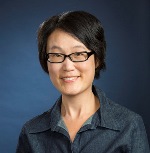 Wen-Hua Du is an assistant teaching professor of Chinese in the Department of Humanities and Arts. Prior to joining WPI, she worked as a senior lecturer and coordinator of the Chinese Program at the Pennsylvania State University and visiting assistant professor at the University of Wisconsin-Madison. Her expertise is in the areas of language teaching, curriculum design, and program development. Her research interests include culture teaching and learning, language learning strategies, and pedagogy of Chinese as a foreign language and Chinese as a heritage language. In addition to teaching various Chinese language courses, she serves as associate director of the China Hub at WPI. She obtained her PhD in curriculum and instruction at the University of Wisconsin-Milwaukee.
Wen-Hua Du is an assistant teaching professor of Chinese in the Department of Humanities and Arts. Prior to joining WPI, she worked as a senior lecturer and coordinator of the Chinese Program at the Pennsylvania State University and visiting assistant professor at the University of Wisconsin-Madison. Her expertise is in the areas of language teaching, curriculum design, and program development. Her research interests include culture teaching and learning, language learning strategies, and pedagogy of Chinese as a foreign language and Chinese as a heritage language. In addition to teaching various Chinese language courses, she serves as associate director of the China Hub at WPI. She obtained her PhD in curriculum and instruction at the University of Wisconsin-Milwaukee.
 James Eddy is an assistant teaching professor in drama/theatre in the Department of Humanities and Arts. He gained experience in acting and directing, as well as lighting, scenic, and production design, at venues such as the Arena Stage in Washington, D.C., the Academy Theatre in Atlanta, Ga., and the Dallas Theatre Center, and he also has considerable academic theatre experience. He says his guiding interest is in how to use developing forms of technology to serve the artistic goals of a theatre production as expressed by the playwright, the director, and the designer. This interest was reflected in his thesis project at the Trinity University at the Dallas Theater Center, where he earned an MFA in theatre. In that project he studied the ways that a designer can contribute to the relationship between the actor and the environmental and visual contexts of a production setting.
James Eddy is an assistant teaching professor in drama/theatre in the Department of Humanities and Arts. He gained experience in acting and directing, as well as lighting, scenic, and production design, at venues such as the Arena Stage in Washington, D.C., the Academy Theatre in Atlanta, Ga., and the Dallas Theatre Center, and he also has considerable academic theatre experience. He says his guiding interest is in how to use developing forms of technology to serve the artistic goals of a theatre production as expressed by the playwright, the director, and the designer. This interest was reflected in his thesis project at the Trinity University at the Dallas Theater Center, where he earned an MFA in theatre. In that project he studied the ways that a designer can contribute to the relationship between the actor and the environmental and visual contexts of a production setting.
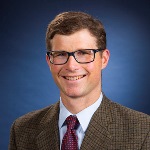 Parker Everett is an assistant teaching professor in history in the Department of Humanities and Arts. His research interests include the history of modern Europe, of cities and urban studies, of anti-Semitism, of Berlin and Chicago, and of critical theory. He is a founder and the assistant editor of Critical Historical Studies, an academic journal published by the University of Chicago Press. His first book, City as Organism, City as Machine: Greater Berlin and the Transformation of Urban Space, 1871–1933, is under contract to the University of Toronto Press. He earned a PhD in modern European history at the University of Chicago.
Parker Everett is an assistant teaching professor in history in the Department of Humanities and Arts. His research interests include the history of modern Europe, of cities and urban studies, of anti-Semitism, of Berlin and Chicago, and of critical theory. He is a founder and the assistant editor of Critical Historical Studies, an academic journal published by the University of Chicago Press. His first book, City as Organism, City as Machine: Greater Berlin and the Transformation of Urban Space, 1871–1933, is under contract to the University of Toronto Press. He earned a PhD in modern European history at the University of Chicago.
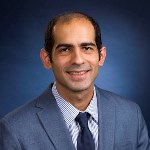 Mohamad Farzinmoghadam is an assistant teaching professor of civil and environmental engineering. He was most recently a green building researcher at the University of Massachusetts Amherst, where he earned a PhD in regional planning. His primary research interests include sustainable building technologies, humanitarian design, and urban metabolism simulation. In collaboration with the UMass Building Technology Lab, he developed the Integrated Urban Metabolism Analysis Tool, which involves modeling the flows of resources and quantifying overall sustainability within urban districts.
Mohamad Farzinmoghadam is an assistant teaching professor of civil and environmental engineering. He was most recently a green building researcher at the University of Massachusetts Amherst, where he earned a PhD in regional planning. His primary research interests include sustainable building technologies, humanitarian design, and urban metabolism simulation. In collaboration with the UMass Building Technology Lab, he developed the Integrated Urban Metabolism Analysis Tool, which involves modeling the flows of resources and quantifying overall sustainability within urban districts.
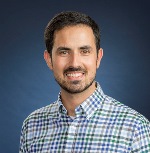 Loris Fichera is an assistant professor of computer science and robotics engineering. In his research he applies engineering and computer science to problems in medicine to help doctors save lives. The projects he has worked on include robot-assisted laser microsurgery and image-guided ear procedures, which was the focus of his work as a postdoctoral researcher at Vanderbilt University and the Vanderbilt University Medical Center. As part of that research, he developed a tiny endoscope that passes through the nose to visualize the inner ear. He completed a PhD in robotics, cognition, and interaction technology at the Italian Institute of Technology and the University of Genoa.
Loris Fichera is an assistant professor of computer science and robotics engineering. In his research he applies engineering and computer science to problems in medicine to help doctors save lives. The projects he has worked on include robot-assisted laser microsurgery and image-guided ear procedures, which was the focus of his work as a postdoctoral researcher at Vanderbilt University and the Vanderbilt University Medical Center. As part of that research, he developed a tiny endoscope that passes through the nose to visualize the inner ear. He completed a PhD in robotics, cognition, and interaction technology at the Italian Institute of Technology and the University of Genoa.
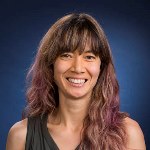 Katherine Foo is an assistant teaching professor in the Interdisciplinary and Global Studies Division. She recently completed a postdoctoral fellowship in the Department of Geography at Pennsylvania State University, and she has been a Sustainability Science Fellow with the USDA Forest Service and a Radcliffe/Rappaport Doctoral Public Policy Fellow at the Harvard Kennedy School. She is a geographer and landscape planner who studies urban ecology, environmental governance, landscape design, and the visualization of society-nature relationships, with a special emphasis on social and environmental justice. Her current research focuses on trees in the urban environment, particularly on how political and economic conditions in cities shape the distribution and health of the urban tree canopy. She earned a PhD in geography at Clark University.
Katherine Foo is an assistant teaching professor in the Interdisciplinary and Global Studies Division. She recently completed a postdoctoral fellowship in the Department of Geography at Pennsylvania State University, and she has been a Sustainability Science Fellow with the USDA Forest Service and a Radcliffe/Rappaport Doctoral Public Policy Fellow at the Harvard Kennedy School. She is a geographer and landscape planner who studies urban ecology, environmental governance, landscape design, and the visualization of society-nature relationships, with a special emphasis on social and environmental justice. Her current research focuses on trees in the urban environment, particularly on how political and economic conditions in cities shape the distribution and health of the urban tree canopy. She earned a PhD in geography at Clark University.
 Tian Guo is an assistant professor of computer science. She joined WPI in 2016 as an assistant research professor. She describes herself as a system builder who focuses on improving the performance and cost of large-scale distributed computing systems. Modern distributed systems, especially those in the cloud, underpin our daily routines by providing support for computation and storage. Her current work focuses on developing model-driven approaches to optimize the performance of these cloud-based applications. She earned a PhD in computer science at the University of Massachusetts Amherst.
Tian Guo is an assistant professor of computer science. She joined WPI in 2016 as an assistant research professor. She describes herself as a system builder who focuses on improving the performance and cost of large-scale distributed computing systems. Modern distributed systems, especially those in the cloud, underpin our daily routines by providing support for computation and storage. Her current work focuses on developing model-driven approaches to optimize the performance of these cloud-based applications. She earned a PhD in computer science at the University of Massachusetts Amherst.
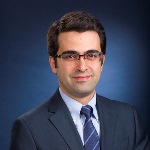 Nima Kordzadeh is a new assistant professor in the Foisie Business School. Before joining WPI, he was an assistant professor of informatics in the College of Business at Idaho State University, where he led the design and launch of new undergraduate and graduate programs in health informatics. In his current research, he is examining the applications of social media platforms, particularly in the context of healthcare. He use theories from different disciplines including information systems, social psychology, behavioral economics, and marketing, and employs a range of qualitative and quantitative techniques to understand how social media platforms can be effectively used in the healthcare domain and how those platforms can benefit health information consumers, healthcare providers, and the community as a whole. He earned a PhD in business administration from the University of Texas at San Antonio.
Nima Kordzadeh is a new assistant professor in the Foisie Business School. Before joining WPI, he was an assistant professor of informatics in the College of Business at Idaho State University, where he led the design and launch of new undergraduate and graduate programs in health informatics. In his current research, he is examining the applications of social media platforms, particularly in the context of healthcare. He use theories from different disciplines including information systems, social psychology, behavioral economics, and marketing, and employs a range of qualitative and quantitative techniques to understand how social media platforms can be effectively used in the healthcare domain and how those platforms can benefit health information consumers, healthcare providers, and the community as a whole. He earned a PhD in business administration from the University of Texas at San Antonio.
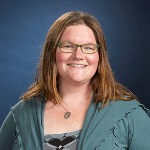 Courtney Kurlanska is an assistant teaching professor in the Interdisciplinary and Global Studies Division. She has taught at several colleges and universities, including Rochester Institute of Technology, Appalachian State University, the University of Akron, and the University of New Hampshire. An economic anthropologist specializing in international development and the social and solidarity economy, she says she believes the Earth cannot sustain our current economic model and she hopes her work motivates people to question their perspectives on progress and move toward more sustainable practices. She earned a PhD in anthropology at the State University of New York. In 2016, she was recognized as a Leadership Fellow by the American Anthropological Association.
Courtney Kurlanska is an assistant teaching professor in the Interdisciplinary and Global Studies Division. She has taught at several colleges and universities, including Rochester Institute of Technology, Appalachian State University, the University of Akron, and the University of New Hampshire. An economic anthropologist specializing in international development and the social and solidarity economy, she says she believes the Earth cannot sustain our current economic model and she hopes her work motivates people to question their perspectives on progress and move toward more sustainable practices. She earned a PhD in anthropology at the State University of New York. In 2016, she was recognized as a Leadership Fellow by the American Anthropological Association.
 Hugh Lauer is a teaching professor of computer science. He has been an adjunct teaching professor since 2006. He came to WPI after five years as a faculty member at the University of Newcastle-upon-Tyne in the United Kingdom and with more than 30 years in industry, including serving as founder and chief technical officer of the Real-Time Visualization business unit, a spin-out of the Mitsubishi Electric Research Labs. His research interests include computer architecture, operating systems, and computer systems, which he has pursued at such companies as Xerox and Eastman Kodak. He earned a PhD in computer science at Carnegie-Mellon University.
Hugh Lauer is a teaching professor of computer science. He has been an adjunct teaching professor since 2006. He came to WPI after five years as a faculty member at the University of Newcastle-upon-Tyne in the United Kingdom and with more than 30 years in industry, including serving as founder and chief technical officer of the Real-Time Visualization business unit, a spin-out of the Mitsubishi Electric Research Labs. His research interests include computer architecture, operating systems, and computer systems, which he has pursued at such companies as Xerox and Eastman Kodak. He earned a PhD in computer science at Carnegie-Mellon University.
 Kyumin Lee is an assistant professor of computer science. He joins WPI from Utah State University, where he spent four years as an assistant professor of computer science. His research interests are in social computing, data science and data mining, cybersecurity over large-scale networks like the Web, and social media and crowdfunding. He notes that his work has positive and negative dimensions. On the negative side, he look for threats to these systems and design ways to mitigate them. On the positive side, he explores opportunities to mine and analyze data from these systems to develop tools that empower decision makers. He received a PhD in computer science from Texas A&M University and has received an NSF CAREER Award and a Google Faculty Research Award.
Kyumin Lee is an assistant professor of computer science. He joins WPI from Utah State University, where he spent four years as an assistant professor of computer science. His research interests are in social computing, data science and data mining, cybersecurity over large-scale networks like the Web, and social media and crowdfunding. He notes that his work has positive and negative dimensions. On the negative side, he look for threats to these systems and design ways to mitigate them. On the positive side, he explores opportunities to mine and analyze data from these systems to develop tools that empower decision makers. He received a PhD in computer science from Texas A&M University and has received an NSF CAREER Award and a Google Faculty Research Award.
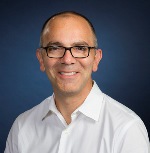 Kevin Lewis is a professor of practice in technical and professional writing in the Department of Humanities and Arts. He joins WPI with over 20 years of professional writing experience, including positions ranging from technical writer to technical documentation manager. He’s also worked as a technical writing consultant, working on such projects as Yahoo’s search marketing platform, Greenwave’s Internet of Things products, and the Electric Power Group’s grid management software. For the past three years, he was a professor of practice in the professional and technical writing program at Virginia Tech. He earned a master of technical and professional writing degree at Northeastern University.
Kevin Lewis is a professor of practice in technical and professional writing in the Department of Humanities and Arts. He joins WPI with over 20 years of professional writing experience, including positions ranging from technical writer to technical documentation manager. He’s also worked as a technical writing consultant, working on such projects as Yahoo’s search marketing platform, Greenwave’s Internet of Things products, and the Electric Power Group’s grid management software. For the past three years, he was a professor of practice in the professional and technical writing program at Virginia Tech. He earned a master of technical and professional writing degree at Northeastern University.
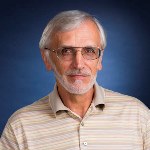 Ivan Mardilovich is an assistant teaching professor of chemistry and biochemistry. He has been a member of the WPI community for the past 18 years, serving as a research assistant and a research associate professor in the Chemical Engineering Department. His research has been directed at developing ecofriendly energy solutions, particularly by helping engineer unique supported palladium alloy membranes and membrane reactors to produce, separate, and purify hydrogen. He earned a PhD in physical chemistry at the People’s Friendship University of Russia.
Ivan Mardilovich is an assistant teaching professor of chemistry and biochemistry. He has been a member of the WPI community for the past 18 years, serving as a research assistant and a research associate professor in the Chemical Engineering Department. His research has been directed at developing ecofriendly energy solutions, particularly by helping engineer unique supported palladium alloy membranes and membrane reactors to produce, separate, and purify hydrogen. He earned a PhD in physical chemistry at the People’s Friendship University of Russia.
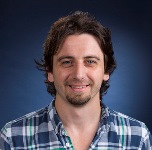 Kӧksal Muş is an assistant teaching professor of electrical and computer engineering. He was most recently an assistant professor in the Computer Science Department at Istanbul Aydin University. His research is in the areas of applied cryptography, one of the most commonly used forms of security for communications over open systems, including the Internet. In particular, his work is aimed at designing a remote voting system using advanced cryptosystems that will allow individuals to vote securely from personal computers, thus making it easier for citizens, particularly the handicapped, to vote and lowering the cost of elections. He earned a PhD in cryptography at the Institute of Applied Mathematics at Middle East Technical University in Ankara, Turkey.
Kӧksal Muş is an assistant teaching professor of electrical and computer engineering. He was most recently an assistant professor in the Computer Science Department at Istanbul Aydin University. His research is in the areas of applied cryptography, one of the most commonly used forms of security for communications over open systems, including the Internet. In particular, his work is aimed at designing a remote voting system using advanced cryptosystems that will allow individuals to vote securely from personal computers, thus making it easier for citizens, particularly the handicapped, to vote and lowering the cost of elections. He earned a PhD in cryptography at the Institute of Applied Mathematics at Middle East Technical University in Ankara, Turkey.
 Rodica Neamtu is an associate teaching professor in computer science. Her main research interests lie at the confluence of theoretical computer science, data mining, and big data. Her work contributes to developing and leveraging groundbreaking techniques for exploring time series datasets, which are sets of data collected at regular intervals over time, in areas such as medicine, economics and education. She explores the theoretical underpinnings of these methods, as well as the practical issues at the heart of big data. She earned her PhD in computer science at WPI in 2017 and has more than 15 years of teaching experience in various academic institutions.
Rodica Neamtu is an associate teaching professor in computer science. Her main research interests lie at the confluence of theoretical computer science, data mining, and big data. Her work contributes to developing and leveraging groundbreaking techniques for exploring time series datasets, which are sets of data collected at regular intervals over time, in areas such as medicine, economics and education. She explores the theoretical underpinnings of these methods, as well as the practical issues at the heart of big data. She earned her PhD in computer science at WPI in 2017 and has more than 15 years of teaching experience in various academic institutions.
 Jeanine Plummer is returning to WPI as an associate professor of civil and environmental engineering after spending a year as principal engineer at Water Quality & Treatment Solutions in Los Angeles. While at WPI, she helped lead the development of the undergraduate program in environmental engineering and was the first Alena and David M. Schwaber Professor of Environmental Engineering. Her teaching and research interests focus on water quality and the safety of drinking waters. She studies water from source to tap, seeking to understand where contaminants originate, what is their fate in the environment, and how to engineer treatment processes to protect public health. She is particularly interested in preventing the transmission of pathogens through water. She earned a PhD in civil engineering at the University of Massachusetts Amherst.
Jeanine Plummer is returning to WPI as an associate professor of civil and environmental engineering after spending a year as principal engineer at Water Quality & Treatment Solutions in Los Angeles. While at WPI, she helped lead the development of the undergraduate program in environmental engineering and was the first Alena and David M. Schwaber Professor of Environmental Engineering. Her teaching and research interests focus on water quality and the safety of drinking waters. She studies water from source to tap, seeking to understand where contaminants originate, what is their fate in the environment, and how to engineer treatment processes to protect public health. She is particularly interested in preventing the transmission of pathogens through water. She earned a PhD in civil engineering at the University of Massachusetts Amherst.
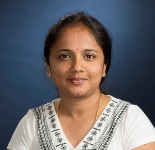 Bheemaiah Veena Shankara Narayana Rao is an assistant teaching professor of mathematical sciences. Her research interests lie at the intersection of mathematics and ecology. Her current research focuses on developing and analyzing mathematical models of population dynamics. In her PhD dissertation, she developed a spatiotemporal model that tracks the density and mass fluctuations of populations of brown shrimp in the Gulf of Mexico, work she hopes will help fisheries scientists design marine protected areas and maintain sustainable fisheries. She earned a PhD in mathematics at Texas A&M University.
Bheemaiah Veena Shankara Narayana Rao is an assistant teaching professor of mathematical sciences. Her research interests lie at the intersection of mathematics and ecology. Her current research focuses on developing and analyzing mathematical models of population dynamics. In her PhD dissertation, she developed a spatiotemporal model that tracks the density and mass fluctuations of populations of brown shrimp in the Gulf of Mexico, work she hopes will help fisheries scientists design marine protected areas and maintain sustainable fisheries. She earned a PhD in mathematics at Texas A&M University.
 Joshua Rohde is an assistant teaching professor of music in the Department of Humanities and Arts. Also, as director of choral activities, he conducts all four of the university’s choral ensembles: the Men’s Glee Club, Alden Voices, the Festival Chorus, and the Chamber Choir. He recently completed a doctor of musical arts degree in choral conducting at Boston University, where he worked with the university’s choirs and taught undergraduate courses in conducting and ear training. He is the music director for the Quincy Choral Society, manages Harvard University’s New Music Initiative, and frequently performs as a cellist for the Worcester Chorus and the Marsh Chapel Collegium Orchestra at Boston University.
Joshua Rohde is an assistant teaching professor of music in the Department of Humanities and Arts. Also, as director of choral activities, he conducts all four of the university’s choral ensembles: the Men’s Glee Club, Alden Voices, the Festival Chorus, and the Chamber Choir. He recently completed a doctor of musical arts degree in choral conducting at Boston University, where he worked with the university’s choirs and taught undergraduate courses in conducting and ear training. He is the music director for the Quincy Choral Society, manages Harvard University’s New Music Initiative, and frequently performs as a cellist for the Worcester Chorus and the Marsh Chapel Collegium Orchestra at Boston University.
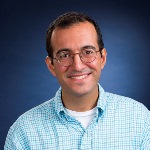 Ahmet Sabuncu is an assistant teaching professor of mechanical engineering. He was most recently a clinical assistant professor in the Department of Mechanical Engineering at Southern Methodist University (Lyle). His research expertise is in the use of microfluidics and bioimpedance spectroscopy for biomedical applications. He is exploring such questions as are there detectable electrical changes at the onset of cancer; could the charges be sensed using a low-cost imaging device; and what electrical properties of single cells could be measured using microfluidics? He earned a PhD in aerospace engineering at Old Dominion University.
Ahmet Sabuncu is an assistant teaching professor of mechanical engineering. He was most recently a clinical assistant professor in the Department of Mechanical Engineering at Southern Methodist University (Lyle). His research expertise is in the use of microfluidics and bioimpedance spectroscopy for biomedical applications. He is exploring such questions as are there detectable electrical changes at the onset of cancer; could the charges be sensed using a low-cost imaging device; and what electrical properties of single cells could be measured using microfluidics? He earned a PhD in aerospace engineering at Old Dominion University.
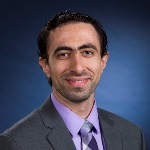 Hussam Saleem is an assistant teaching professor of civil and environmental engineering. He joins WPI from Michael Baker International, a global engineering, planning, and consulting firm, where he worked on projects involving the design of new bridges and bridge rehabilitation. His research interests are in the area of real-time structural health monitoring, particularly for bridges and large-scale systems. Structural health monitoring essentially means using sensors and special algorithms to detect damage to these systems and plan maintenance to assure the integrity of our civil infrastructure. He works on the development of the entire system, starting from the sensor material development to characterization and verification. Saleem earned a PhD in structural engineering at Iowa State University.
Hussam Saleem is an assistant teaching professor of civil and environmental engineering. He joins WPI from Michael Baker International, a global engineering, planning, and consulting firm, where he worked on projects involving the design of new bridges and bridge rehabilitation. His research interests are in the area of real-time structural health monitoring, particularly for bridges and large-scale systems. Structural health monitoring essentially means using sensors and special algorithms to detect damage to these systems and plan maintenance to assure the integrity of our civil infrastructure. He works on the development of the entire system, starting from the sensor material development to characterization and verification. Saleem earned a PhD in structural engineering at Iowa State University.
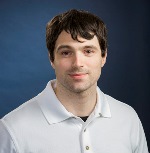 Douglas Selent is an assistant teaching professor in computer science. His research is in the area of computer science and the learning sciences, particularly in the construction of systems to help improve student learning and analyze experiments more effectively. For example, working with WPI computer science professor Neil Heffernan and his ASSISTments online tutoring system, Selent created PeerASSIST, which crowdsources student work and redistributes that work to peers in need of assistance. He also contributed to the Assessment of Learning Infrastructure project, a platform that helps share the research team’s experimental results with other researchers. He earned a PhD in computer science from WPI in 2017.
Douglas Selent is an assistant teaching professor in computer science. His research is in the area of computer science and the learning sciences, particularly in the construction of systems to help improve student learning and analyze experiments more effectively. For example, working with WPI computer science professor Neil Heffernan and his ASSISTments online tutoring system, Selent created PeerASSIST, which crowdsources student work and redistributes that work to peers in need of assistance. He also contributed to the Assessment of Learning Infrastructure project, a platform that helps share the research team’s experimental results with other researchers. He earned a PhD in computer science from WPI in 2017.
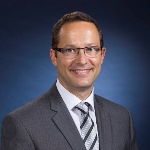 Albert Simeoni has rejoined WPI as professor and interim head of the Department of Fire Protection Engineering. He was a member of the WPI faculty from 2010 to 2013, and since then has held positions at Jensen Hughes and Exponent and served as a full professor and research chair of Fire Safety Engineering at the University of Edinburgh in the UK. He earned his PhD in mechanical engineering at the University of Corsica. In his current research focus, he is seeking a better understand of the behavior of wildland fires in a changing environment. The goal is to help communities, ecosystems, and society, in general, be more resilient to catastrophic fires by developing engineering solutions to current vulnerabilities at the wildland-urban interface and in the wild. With colleagues at WPI, Notre Dame University, and the University of Edinburgh, he is leading a project sponsored by the U.S. Forest Service that is using a portable wind tunnel to study wind-driven wildland fires under real-world conditions.
Albert Simeoni has rejoined WPI as professor and interim head of the Department of Fire Protection Engineering. He was a member of the WPI faculty from 2010 to 2013, and since then has held positions at Jensen Hughes and Exponent and served as a full professor and research chair of Fire Safety Engineering at the University of Edinburgh in the UK. He earned his PhD in mechanical engineering at the University of Corsica. In his current research focus, he is seeking a better understand of the behavior of wildland fires in a changing environment. The goal is to help communities, ecosystems, and society, in general, be more resilient to catastrophic fires by developing engineering solutions to current vulnerabilities at the wildland-urban interface and in the wild. With colleagues at WPI, Notre Dame University, and the University of Edinburgh, he is leading a project sponsored by the U.S. Forest Service that is using a portable wind tunnel to study wind-driven wildland fires under real-world conditions.
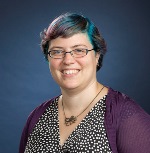 Gillian Smith is an assistant professor of computer science. She joins WPI from Northeastern University, where she had a joint faculty appointment between the College of Computer and Information Science and the Department of Art+Design. In her research, she merges artificial intelligence, human-computer interaction, and creative practice in textiles and games. For example, in collaboration with Disney Research Pittsburgh, she co-created Threadsteading, a strategy game played on a consumer embroidery machine. She is also leading an NSF-funded project on teaching computer science principles through game design that uses AI techniques to assess student learning. She earned a PhD in computer science from the University of California, Santa Cruz, where she was a student in the Center for Games and Playable Media.
Gillian Smith is an assistant professor of computer science. She joins WPI from Northeastern University, where she had a joint faculty appointment between the College of Computer and Information Science and the Department of Art+Design. In her research, she merges artificial intelligence, human-computer interaction, and creative practice in textiles and games. For example, in collaboration with Disney Research Pittsburgh, she co-created Threadsteading, a strategy game played on a consumer embroidery machine. She is also leading an NSF-funded project on teaching computer science principles through game design that uses AI techniques to assess student learning. She earned a PhD in computer science from the University of California, Santa Cruz, where she was a student in the Center for Games and Playable Media.
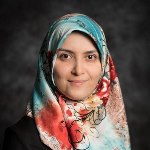 Hoda Atef Yekta is a visiting instructor in the Foisie Business School. Her research is in the area of optimization, which essentially means finding the most cost-effective, productive, or fairest solution to a given problem within a set of constraints. She has studied the application of the tools of optimization in matching theory and mechanism design to such challenges as allocating scarce classroom capacity, assigning workers to teams, and increasing the number of funded loans in a peer-to-peer lending market. She is a PhD candidate at the University of Connecticut, where she received the Graduate Teaching Award from the Operations and Information Management Department.
Hoda Atef Yekta is a visiting instructor in the Foisie Business School. Her research is in the area of optimization, which essentially means finding the most cost-effective, productive, or fairest solution to a given problem within a set of constraints. She has studied the application of the tools of optimization in matching theory and mechanism design to such challenges as allocating scarce classroom capacity, assigning workers to teams, and increasing the number of funded loans in a peer-to-peer lending market. She is a PhD candidate at the University of Connecticut, where she received the Graduate Teaching Award from the Operations and Information Management Department.
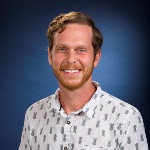 Nicholas Williams is an assistant teaching professor in the Interdisciplinary and Global Studies Division. He joined WPI after serving as a postdoctoral research fellow in the Environmental Studies Program at the University of Colorado Boulder. In his research, he is interested in the ways in which political, economic, and ecological changes influence our relationship to the environment, with a particular interest in food systems. He carries out his research through interdisciplinary collaborations that combine qualitative and quantitative methods to answer theoretical questions that help to inform actionable policy. At WPI, he will draw on his applied research experiences in Nicaragua and Sri Lanka to advise students through the development and implementation of off-campus projects. He earned a PhD in sociocultural anthropology at the University of California, Santa Barbara.
Nicholas Williams is an assistant teaching professor in the Interdisciplinary and Global Studies Division. He joined WPI after serving as a postdoctoral research fellow in the Environmental Studies Program at the University of Colorado Boulder. In his research, he is interested in the ways in which political, economic, and ecological changes influence our relationship to the environment, with a particular interest in food systems. He carries out his research through interdisciplinary collaborations that combine qualitative and quantitative methods to answer theoretical questions that help to inform actionable policy. At WPI, he will draw on his applied research experiences in Nicaragua and Sri Lanka to advise students through the development and implementation of off-campus projects. He earned a PhD in sociocultural anthropology at the University of California, Santa Barbara.
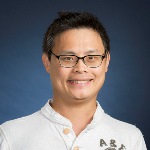 Kun-Ta Wu is an assistant professor of physics. Before joining WPI, he was a physics lecturer at Brandeis University, where he had previously been a postdoctoral associate. In his research, he investigates interactions among miscellaneous DNA and proteins. He uses proteins such as molecular motors to generate dynamics, as well as DNA to create specific, thermal-reversible interactions. With DNA and proteins, his goal is to advance our understanding of self-organization of active matter as well as to create new bio-inspired materials. He earned a PhD in physics at New York University.
Kun-Ta Wu is an assistant professor of physics. Before joining WPI, he was a physics lecturer at Brandeis University, where he had previously been a postdoctoral associate. In his research, he investigates interactions among miscellaneous DNA and proteins. He uses proteins such as molecular motors to generate dynamics, as well as DNA to create specific, thermal-reversible interactions. With DNA and proteins, his goal is to advance our understanding of self-organization of active matter as well as to create new bio-inspired materials. He earned a PhD in physics at New York University.
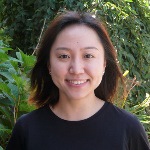 Min Wu is an assistant professor of mathematical sciences. Before joining WPI, she was a postdoctoral researcher at École Normale Supérieure in Paris and a visiting assistant professor in the Department of Engineering Sciences and Applied Mathematics at Northwestern University. Her research in mathematical biology is aimed at understanding how animals shape themselves. From ants to elephants, animals come in all shapes and sizes, and she says it is interesting and important to know how growth and forces are patterned and how they interplay in forming these shapes. To answer these questions, she develops mathematical and computational models of growth and explores how to infer the forces at play in living tissue based on imaging data. She earned a PhD in mathematics at the University of California, Irvine.
Min Wu is an assistant professor of mathematical sciences. Before joining WPI, she was a postdoctoral researcher at École Normale Supérieure in Paris and a visiting assistant professor in the Department of Engineering Sciences and Applied Mathematics at Northwestern University. Her research in mathematical biology is aimed at understanding how animals shape themselves. From ants to elephants, animals come in all shapes and sizes, and she says it is interesting and important to know how growth and forces are patterned and how they interplay in forming these shapes. To answer these questions, she develops mathematical and computational models of growth and explores how to infer the forces at play in living tissue based on imaging data. She earned a PhD in mathematics at the University of California, Irvine.
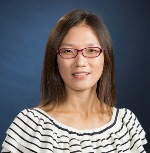 Jun Yang is an assistant teaching professor of mechanical engineering. She was most recently a postdoctoral associate at MIT. Her research involves the modeling of the mechanics and physics of healthy and diseased cells using what are known as multi-scale particle-based methods. These methods allow the behavior of these cells to be observed simultaneously at a wide range of scales, which is helpful when studying systems with important phenomena that occur at multiple scales. She has used these methods to study the mechanobiology of sickle cell anemia, among other biological phenomena. She earned her PhD in mechanical engineering at WPI.
Jun Yang is an assistant teaching professor of mechanical engineering. She was most recently a postdoctoral associate at MIT. Her research involves the modeling of the mechanics and physics of healthy and diseased cells using what are known as multi-scale particle-based methods. These methods allow the behavior of these cells to be observed simultaneously at a wide range of scales, which is helpful when studying systems with important phenomena that occur at multiple scales. She has used these methods to study the mechanobiology of sickle cell anemia, among other biological phenomena. She earned her PhD in mechanical engineering at WPI.
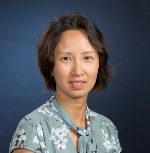 Mei Yang is an assistant research professor of mechanical engineering and associate technical director of the Center for Heat Treating Excellence within WPI’s Metal Processing Institute. She was most recently a senior research and development engineer at H.C. Starck. Her expertise is in the areas of integrated materials and process development for metals and ceramics. By combining modeling and experimental investigation, processes can be optimized and controlled to improve the reliability of their properties. Her current research focus is advanced heat treatment processes. She earned a PhD in materials science and engineering at WPI.
Mei Yang is an assistant research professor of mechanical engineering and associate technical director of the Center for Heat Treating Excellence within WPI’s Metal Processing Institute. She was most recently a senior research and development engineer at H.C. Starck. Her expertise is in the areas of integrated materials and process development for metals and ceramics. By combining modeling and experimental investigation, processes can be optimized and controlled to improve the reliability of their properties. Her current research focus is advanced heat treatment processes. She earned a PhD in materials science and engineering at WPI.
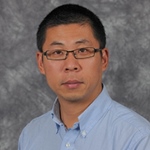 Yu (Michael) Zhong is an associate professor of mechanical engineering. He joins WPI after serving as an assistant professor at Florida International University, but he also spent eight years as an internal technical consultant at Saint-Gobain High Performance Research Center in Northborough. His expertise is in integrated computational materials engineering, which is a way of understanding how processes produce material structures, how those structures give rise to material properties, and how to select the best materials for a given application. He earned a PhD in materials science and engineering at Pennsylvania State University.
Yu (Michael) Zhong is an associate professor of mechanical engineering. He joins WPI after serving as an assistant professor at Florida International University, but he also spent eight years as an internal technical consultant at Saint-Gobain High Performance Research Center in Northborough. His expertise is in integrated computational materials engineering, which is a way of understanding how processes produce material structures, how those structures give rise to material properties, and how to select the best materials for a given application. He earned a PhD in materials science and engineering at Pennsylvania State University.
